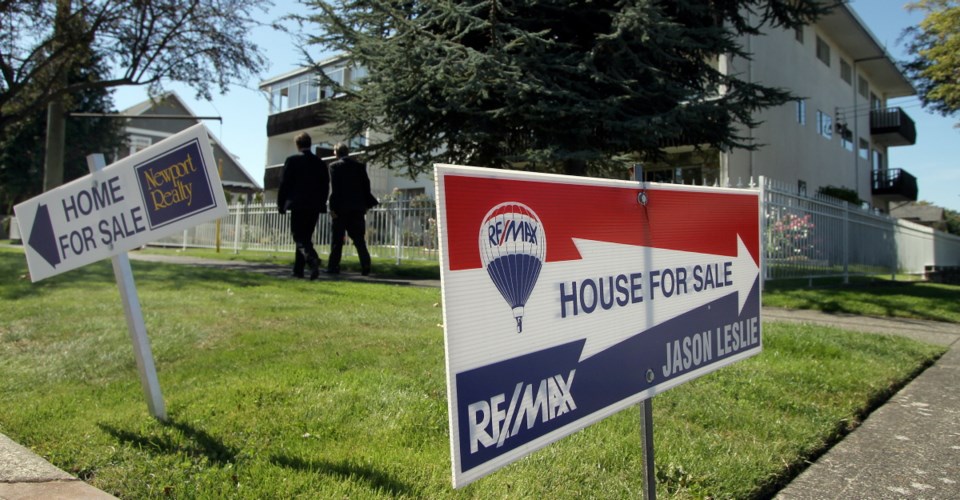Passed a line of people waiting outside a walk-in clinic Thursday morning, a dozen of them queued along the sidewalk. It evoked memories of the old Boxing Day Sale lineup at A&B Sound.
Back in the A&B days, people would have been shocked to see the equivalent of a Soviet bread line outside a Victoria walk-in clinic. No more.
Talk to candidates in the provincial election and they’ll tell you the doctor shortage is one of the biggest worries they hear while door-knocking. People who don’t have a family physician are frustrated by their inability to find one. People who have one are worried about that doctor retiring.
So, yes, the GP shortage is a big deal for voters. So is transportation, at least for those who spend half their lives inching along the commuter corridors into town.
No issue, though, comes close to the one dominating the doorstep: affordability. As in the total inability to get ahead while struggling to choose between A) making rent/mortgage payments and B) eating anything other than pet food and carpet underlay.
>> MORE B.C. ELECTION COVERAGE
Candidates can talk about softwood lumber, or Site C, or fentanyl, or climate change, or cash-for-access, but if they really want to get voters’ attention, turn the conversation to the topics that hit them at home — and nothing hits home like the cost of buying one.
In January, an international survey ranked Victoria the least affordable smaller market in Canada, based on the ratio of housing costs to income. Our median home price of $542,400 was eight times higher than the median household income of $67,300. That’s not as bad as Vancouver, where the ratio was almost 12 to one, but anything greater than three-to-one is considered unaffordable.
In an effort to put a brake on prices, Victoria council tried to get other municipalities interested in a regionwide 15 per cent foreign-buyers’ tax similar to the one that blankets the Lower Mainland, but got no takers.
So, on Thursday night council was scheduled to push for a foreign-buyers’ tax that would apply to the capital alone.
Good luck with that: The idea would need the approval of the provincial government, and there’s no way the latter will approve a tax that affects Victoria proper but not Gordon Head, the kingdom of Oak Bay, or the principality of Lower Luxton.
Just as well, because any time you start discriminating on the basis of nationality, you might as well start preparing the heartfelt official apology to be delivered a generation later. If the intent is to clamp down on speculation, then go after speculators, not foreigners.
As it is, the latter aren’t that big a factor. Between June 10, 2016, and the end of February, sales to foreigners accounted for 356 — or 4.5 per cent — of the 7,925 residential property deals in the capital region.
The truth is that buyers come from all over. We have Prairie folk who bought their pre-retirement golf course condos during the oil boom. We have Canadian snowbirds who cashed out of their winter home in Phoenix when the U.S. dollar rose. We have Victorians snapping up downtown units as Airbnb rentals.
Then there’s the idea that the real estate boom is less about people looking for a place to live than it is about capital looking for a place to land.
The political parties all have housing planks in their platforms.
The Liberals have already brought in their 15 per cent tax on foreign buyers in the Lower Mainland. They introduced down-payment loans of up to $37,500 for certain first-time homebuyers, and have promised $855 million over five years to build or renovate 4,900 units of affordable housing.
The NDP is touting a speculation tax — a two per cent annual levee on the value of homes whose owners do not otherwise pay taxes in B.C. It also proposes a $400 annual rebate to renters and tougher laws to prevent “renovictions.” The party promises to build 114,000 rental, co-op and social units over 10 years.
The Green plan includes doubling the foreign-buyer tax to 30 per cent and extending it across B.C.; a sliding scale for the property transfer tax, starting at zero per cent for homes worth $200,000 or less, rising to 12 for $3 million or more; a “speculation” property transfer tax to discourage flipping; $750 million annually to build 4,000 affordable housing units per year.
Something to chew on (along with your carpet underlay) while in line at the walk-in clinic.



